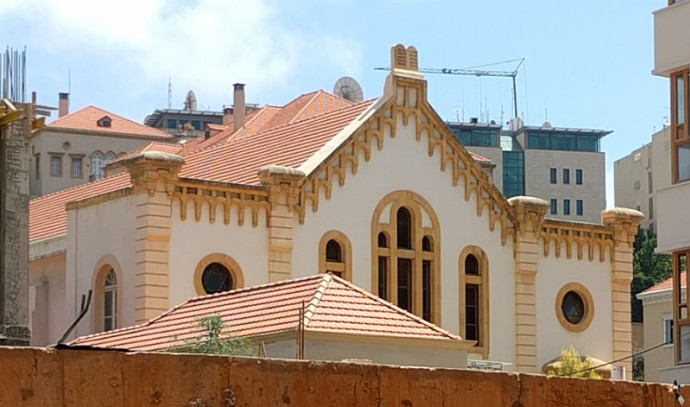The Jewish community in Lebanon, once a vibrant emblem of the country’s rich tapestry of religious diversity, has seen its numbers sharply decline from an estimated 14,000 at its peak to just a few dozen today. As Israel is in the midst of a possible war with the Hezbollah terror organization in Lebanon, we bring you the story of this community, marked by resilience in the face of political turmoil and societal shifts, was poignantly captured in recent reports.
Israel has allegedly told Hezbollah that they have until March 15 to resolve the conflict diplomatically, according to an article by Lebanese media source Al-Akhbar published on Thursday. The article claimed that American envoy Amos Hochstein has been attempting to subdue conflicts “of the southern front” as a preliminary stage to Israel forming a comprehensive agreement with Lebanon.
The article claims that American envoy Amos Hochstein has been attempting to subdue conflicts “of the southern front” as a preliminary stage to Israel forming a comprehensive agreement with Lebanon.
The situation of the Lebanese Jewish community was recently brought to light the death of Isaac Arazi, a key figure in the Jewish community, known for his instrumental role in rehabilitating Beirut’s Magen Avraham synagogue. Arazi’s passing in late 2023 marked the end of an era for Lebanon’s Jews, encapsulating the community’s ongoing struggle to preserve its identity against the backdrop of Lebanon’s complex sectarian landscape and a history of conflict.
A Lebanese newspaper, L’Orient-Le Jour, wrote two articles recently that provided a deep dive into the community’s historical context, tracing the origins of Lebanon’s Jewish population and its integration into the social fabric of the country. The narrative highlighted individuals like Albert Dichy, who in the aftermath of the Six Day War faced growing suspicion and marginalization due to his religious identity, despite having no personal ties to Israel. This period exacerbated the challenges for Lebanese Jews, further isolating them within their own country.
Community’s decline was accelerated by civil war
Lebanon’s Civil War (1975-1990) significantly accelerated the community’s decline, with many Jews fleeing the country to escape the violence and the increasing hostility they faced. By the mid-1980s, the community had dwindled to a few hundred, and by the turn of the century, to a mere handful. The once-thriving Jewish neighborhoods in cities like Beirut were left deserted, their synagogues abandoned or repurposed.
Despite these adversities, figures like Arazi worked tirelessly to maintain what was left of the Jewish heritage in Lebanon. His efforts to restore the Magen Avraham Synagogue, completed in 2010 but damaged again in the 2020 Beirut port explosion, were emblematic of a broader struggle to preserve Jewish cultural and religious life in Lebanon. However, Arazi was realistic about the challenges, acknowledging the difficulties of reviving a vibrant Jewish community in a country still grappling with the echoes of past conflicts and a fragile sectarian balance.
The stories of Lebanon’s last Jews, from Arazi’s efforts to preserve Jewish landmarks to the individual experiences of people like Dichy, serve as powerful reminders of the impacts of historical grievances, political strife, and sectarianism on minority communities. These narratives underscore the complexities of identity and belonging in the Middle East, highlighting the silent fade of a community that once played a significant role in Lebanon’s diverse society.
JTA contributed to this report.







